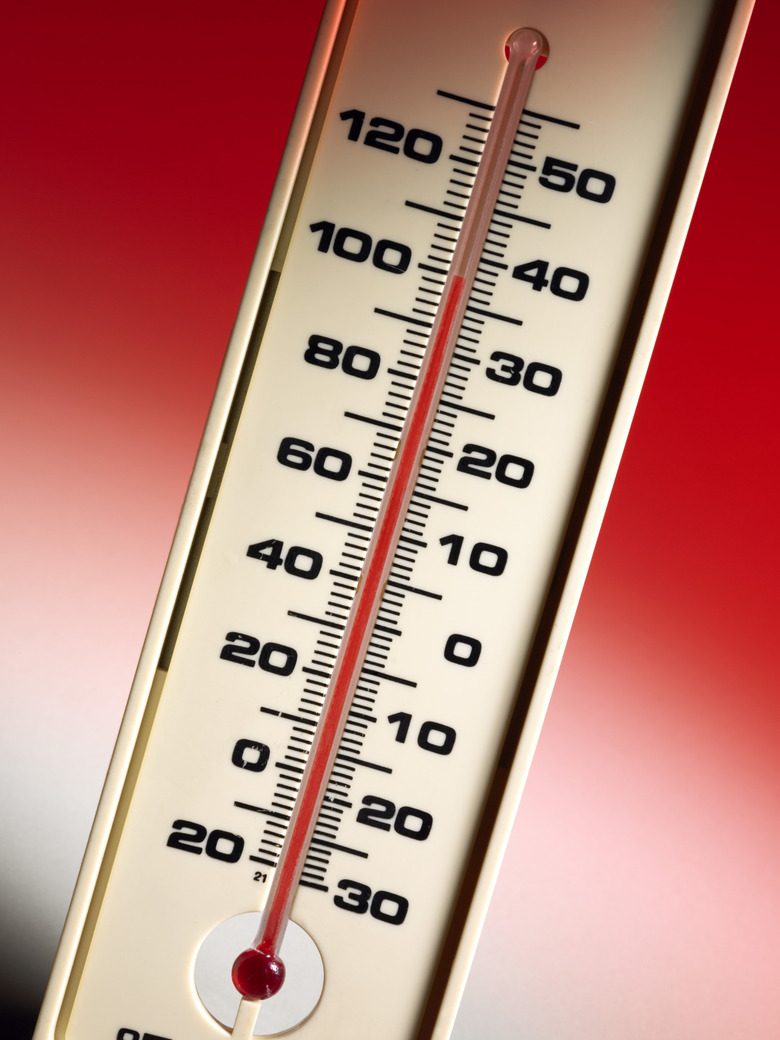Why Is Constant Temperature Important In An Experiment?
An experiment is carried out to demonstrate the effect of independent variable on a dependant variable. During an experiment, scientists must prevent outside influences, known as confounding variables, from altering the results. When a scientist actively decides to limit the impact of a confounding variable, it becomes known as a control variable instead. Although it is not always a confounding variable in experiments, scientists will often choose to control the variable of temperature by holding it constant.
How Control Variables Work
How Control Variables Work
Control variables are those factors that scientists actively choose to control during the course of an experiment. Control variables are important because they minimize outside influences on the dependant variable while ensuring that the effects independent variable are the only thing being measured. For example, if a scientist was testing the effects of moisture on a particular molecule's structure, she would want to ensure that moisture was the only thing altering the molecule. Thus, she might control for other influences that could also have an impact on molecular structure, such as temperature change.
Faulty Results
Faulty Results
Control variables help prevent errors in the experiment. Without appropriate control variables, an experiment is prone to Type III errors. In a Type III error, the experimenter accepts her hypothesis for the wrong reason. For instance, if the scientist in the previous example chose not make temperature a control variable, she might notice a change in the molecule and assume that moisture caused it. In reality, it could have been temperature change, not the moisture, that perpetuated the results.
Temperature as a Confounding Variable
Temperature as a Confounding Variable
Once you understand the importance of identifying confounding variables and establishing control variables, you are more likely to develop solid, replicable experiments. However, temperature change is a confounding variable that is often overlooked or not believed to be important. To get an idea of how temperature change can confound an experiment, consider the following example: Sue is running an experiment in which sexual orientation is the independent variable and aggression is the dependant variable. She brings a group of homosexual men into the experiment room and hooks them up to devices that measure heart rate and blood pressure. Next, she reads them a story that includes a great deal of violence to see how it will affect their physiological response. She does the same thing with a group of heterosexual men. However, the room is uncomfortably hot during their test because the air conditioner is broken. In reviewing her results, she notices that the heterosexual men's pulse and blood pressure increased more than the homosexual men's. She assumes that heterosexual men are naturally more aggressive than homosexual men. However, hot temperatures are known to increase aggression. She has committed a Type III error, because the heat may have caused the heterosexual group to express greater physiological aggression than they would have at a lower temperature. To prevent this, she should have made temperature a control variable and ensured that both groups were tested in a room of roughly the same temperature.
Establishing Temperature as a Control Variable
Establishing Temperature as a Control Variable
When constructing experiments, scientists must list all their variables and develop a plan for carrying out the test. To make temperature change a control variable in your experiment, you must include it in your research plan. Clearly state your intention to control for temperature changes, explain why temperature fluctuations could confound the experiment and outline your strategy for maintaining a constant temperature. During the experiment, you should follow your plan carefully.
Cite This Article
MLA
Hanson, Elle. "Why Is Constant Temperature Important In An Experiment?" sciencing.com, https://www.sciencing.com/constant-temperature-important-experiment-10003249/. 24 April 2017.
APA
Hanson, Elle. (2017, April 24). Why Is Constant Temperature Important In An Experiment?. sciencing.com. Retrieved from https://www.sciencing.com/constant-temperature-important-experiment-10003249/
Chicago
Hanson, Elle. Why Is Constant Temperature Important In An Experiment? last modified March 24, 2022. https://www.sciencing.com/constant-temperature-important-experiment-10003249/
